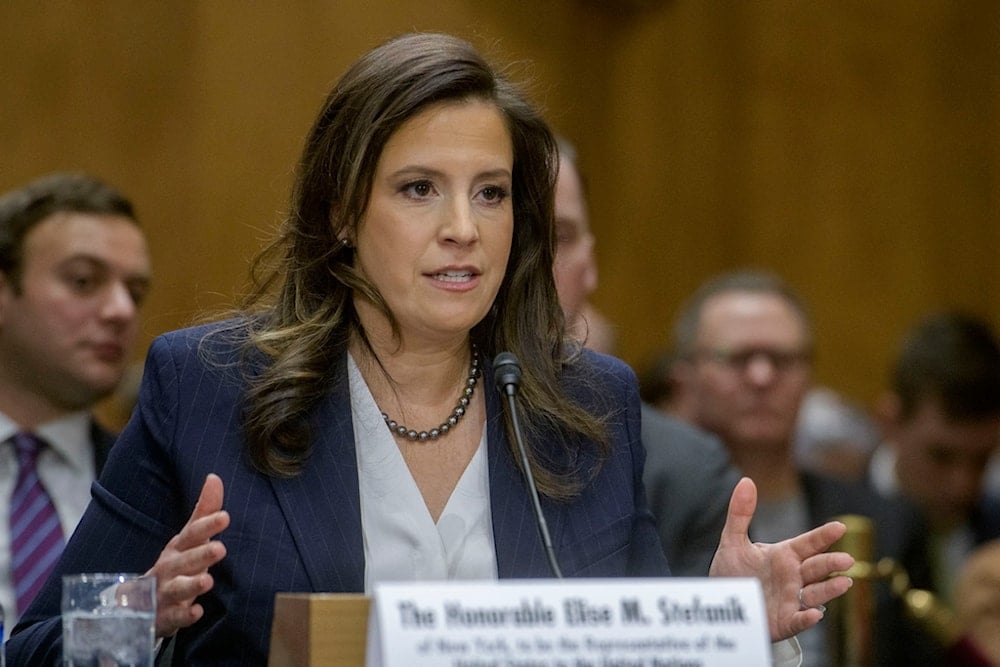UN Ambassador nominee calls Russian, Chinese veto powers a 'challenge'
China's use of its veto power has frequently clashed with US initiatives in the Security Council.
-

Rep. Elise Stefanik, R-N.Y., President Donald Trump's nominee to be the United Nations Ambassador, testifies during a Senate Committee on Foreign Relations hearing for her pending confirmation on Capitol Hill, Tuesday, Jan. 21, 2025, in Washington (AP Photo/Rod Lamkey, Jr.)
Elise Stefanik, nominated to serve as the United States Ambassador to the United Nations, described the veto power held by Russia and China in the UN Security Council as a significant obstacle. Speaking during her Senate confirmation hearing on Tuesday, Stefanik highlighted the difficulties this poses to advancing U.S. interests at the UN.
"It's a significant challenge. It's a challenge that the ambassador, if confirmed, will face every day with China and Russia veto on P5, and it's a challenge that we are going to need to continue addressing," Stefanik said.
Stefanik underlined the importance of defending American values within the Security Council, though she acknowledged the limitations imposed by the veto powers of these two permanent members.
She described the task as a "challenge," suggesting that her approach would involve finding ways to navigate these diplomatic barriers while standing firm on US principles.
Veto Clashes
China's use of its veto power has frequently clashed with US initiatives in the Security Council. For example, in 2024, China vetoed a biased US-backed resolution for a ceasefire in Gaza during the war on Gaza, citing "ambiguities" in the draft.
In 2022, China, along with Russia, blocked a US-sponsored resolution imposing sanctions on DPRK following ballistic missile tests, arguing that sanctions would exacerbate tensions.
Similarly, in 2017, China vetoed a US-led resolution to investigate the alleged use of chemical weapons in Syria, stressing the need for comprehensive solutions over punitive measures.
Read more: For fourth time US vetoes UNSC resolution advocating ceasefire in Gaza

 2 Min Read
2 Min Read








